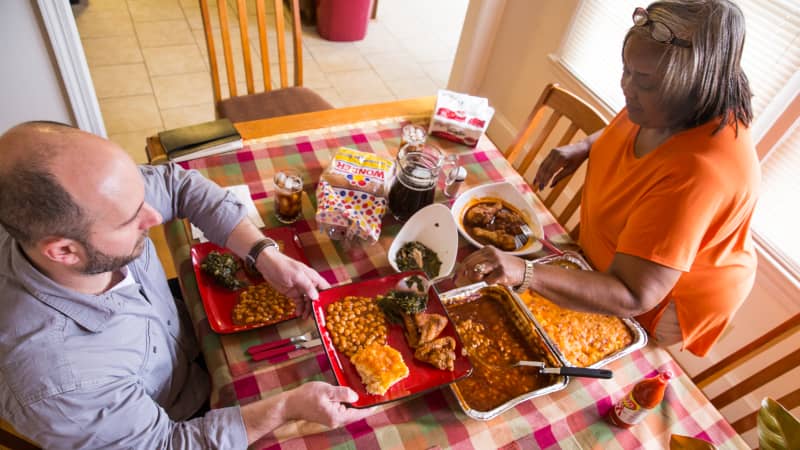"I’m coming!” yells Linda Dillard. She swings open the door with a wide smile, inviting me into her kitchen. A deep pot of oil heats on the stove; she flicks a few droplets of water from her wet fingertips into the oil to see if it’s hot enough for chicken. It doesn’t even sputter, so we turn to conversation while we wait.
On the Road: Keys to the (Fried Chicken) Kingdom
Published Jan. 19, 2022.

Dillard delights in sharing the history of dipped chicken, made famous by her late father, Benjamin Franklin Cureton Sr. Cureton started a burger and dog business in Salisbury, North Carolina, in 1942. Fried chicken was only an afterthought. But the chicken soon proved to be the most popular thing on the menu, and the business came to be known as Frankie’s Chicken Shack—“Frank’s” to locals.
Sign up for the Cook's Country Dinner Tonight newsletter
10 ingredients. 45 minutes. Quick, easy, and fresh weeknight recipes.
To keep up with demand, Cureton needed to fry some chicken well before the customers arrived, and he looked for a way to keep the chicken warm. Cureton’s wife, Nannie Mae Stevenson-Cureton, suggested rewarming the chicken in a sauce and developed the hot, vinegary concoction (“dip”) that became their trademark. Stirred together in 5-gallon buckets, the dip, Dillard says, was called “the keys to the kingdom.” So protective was the family that when it was time for Dillard’s brother, Benjamin Franklin Cureton Jr., to learn the recipe himself, he grabbed a pencil and paper, but his mother was quick to tell him that the secret formula must never be written down, only memorized.
North Carolina Dipped Fried Chicken
Dip? Hardly. We took a deep dive into this local take on fried chicken.Frankie’s fame spread well beyond Salisbury. Even Duke Ellington and his musicians stopped by whenever they were in town. In 1986, Cureton Sr. handed over the business to Dillard and her brother, who ran it for another 18 years. The business eventually closed for good in 2004.
Back in her kitchen, Dillard coats pieces of chicken with seasoned flour and then drops them into the oil with the kind of confidence that only 40 years of frying chicken can produce. She needs no timer to know when it’s done.
As Dillard pours the hot, spicy dip over the craggy pieces of chicken, the sharp aroma of vinegar cuts the air. I set the table, which she fills with collards, macaroni and cheese, and barbecue beans. I devour the food, and she takes great satisfaction and pride in my pleasure.
